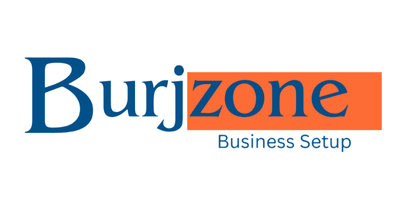Our Blog
Home / Blog
Managing Projects Across UAE: Key Challenges in Sharjah, Dubai & Other Emirates
Managing projects across the diverse and rapidly developing Emirates of the UAE, including Sharjah, Dubai, Abu Dhabi, and beyond, presents unique challenges. From regulatory differences to cultural diversity and logistical complexities, businesses must navigate various hurdles to deliver successful projects on time and within budget.
This article explores the key challenges businesses face when managing projects across the UAE and offers insights into overcoming them effectively.
1. Navigating Regulatory Variations Across Emirates
Each Emirate in the UAE has its own regulatory framework, licensing authorities, and compliance requirements. For example:
-
Dubai has multiple freezones such as Dubai Internet City and Jebel Ali Freezone, each with specific audit, tax, and operational rules.
-
Sharjah has distinct regulations governing industrial and commercial zones like Sharjah Hamriyah Freezone.
-
Abu Dhabi applies unique standards in areas such as Khalifa Industrial Zone (KIZAD) and other mainland locations.
Project managers must stay updated with local laws, permits, and documentation needed in each jurisdiction to avoid costly delays or penalties.
2. Coordinating Multicultural Teams and Stakeholders
The UAE’s workforce is highly multicultural, bringing together professionals from diverse backgrounds. While this enriches projects with varied perspectives, it also creates challenges such as:
-
Communication barriers
-
Differing work styles and expectations
-
Time zone coordination for multinational teams
-
Aligning goals and priorities
Successful project management requires strong interpersonal skills and cultural sensitivity to foster collaboration across Dubai, Sharjah, and other Emirates.
3. Logistics and Supply Chain Complexity
Managing materials, equipment, and resources across different Emirates involves:
-
Navigating customs and freezone regulations, especially for goods moving between Dubai Freezones and mainland areas
-
Ensuring timely delivery despite traffic congestion or weather conditions
-
Handling multiple vendors and contractors with varying reliability and standards
Effective logistics planning and contingency strategies are essential to keep projects on track.
4. Resource Availability and Skilled Labor Shortages
While the UAE attracts global talent, certain specialized skills may be scarce or expensive, particularly in niche industries or remote Emirates. Project managers face challenges such as:
-
Recruiting and retaining qualified professionals in Sharjah or Ajman
-
Managing labor laws and visa regulations in different Emirates
-
Balancing workforce costs with project budgets
Proper human resource planning and partnerships with local recruitment agencies can help mitigate these issues.
5. Managing Time Zones and Remote Collaboration
Many UAE projects involve international partners or clients. Coordinating schedules across time zones, especially for teams in Dubai, Abu Dhabi, and overseas locations, requires:
-
Using effective communication and project management tools
-
Scheduling regular updates that accommodate all stakeholders
-
Ensuring clear documentation and follow-up
This challenge has grown with the rise of remote and hybrid work models.
6. Maintaining Quality and Compliance Across Locations
Consistency in quality and compliance is vital for brand reputation and regulatory approval. Challenges include:
-
Different inspection and certification standards in each Emirate
-
Varying levels of enforcement by freezone authorities versus mainland regulators
-
Managing subcontractors and suppliers to meet uniform standards
Implementing standardized processes and regular audits across sites in Dubai, Sharjah, and beyond ensures quality control.
7. Budget Management and Currency Fluctuations
Although the UAE dirham is pegged to the US dollar, international projects may face currency risks, affecting:
-
Procurement costs from foreign suppliers
-
Contractor payments and international payroll
-
Inflation and economic shifts impacting material prices
Accurate forecasting and financial controls are critical for maintaining budget discipline.
Managing projects across the UAE’s Emirates like Sharjah, Dubai, and Abu Dhabi involves navigating regulatory diversity, multicultural teams, logistical challenges, and financial risks. By understanding these challenges and implementing proactive strategies, businesses can enhance their project success rates and drive growth in this vibrant market.
#ProjectManagementUAE #SharjahProjects #DubaiProjectChallenges #UAEConstruction #AbuDhabiBusiness
#MulticulturalTeamsUAE #LogisticsUAE #QualityComplianceUAE #BudgetManagementUAE #UAEFreezones
